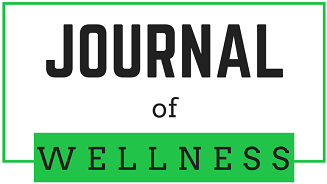
Funder
The author(s) received no specific funding for this work.
Conflict of Interest
The author(s) have no conflict of interest to declare for this work.
Abstract
Introduction: Surgical trainees have high rates of burnout compared to residents from other specialties. However, burnout is underreported by trainees, limiting potential interventions to improve wellness. Loved ones are an underused resource for assessing wellness and detecting burnout among residents. The purpose of this study is to assess the perceptions and concerns regarding resident wellness and burnout, as well as strategies to improve wellness, from the perspective of loved ones.
Methods: This cross-sectional survey study was conducted in 2022 at an urban academic center after ethics board approval. An anonymous 18-question survey to assess resident burnout, wellness, and strategies to improve wellness was distributed to loved ones of general surgery residents. Open-ended questions were analyzed using content analysis while descriptive analysis was used for Likert scale and multiple choices questions.
Results: Of the general surgery residency cohort, 40.6% (13/32) of residents participated in the project, and 32 unique survey responses were received from loved ones. 73.12% of participants indicated that they were worried about the wellness of the resident. 93.75% of respondents described the resident as experiencing burnout at least once per year. Respondents reported factors most frequently contributing to resident burnout: lack of sleep (96.9%), feeling overworked or having long hours (96.9%), insufficient time for professional or academic development due to service obligations (87.1%), and feeling underappreciated (87.1%). Respondents identified the following strategies as potentially effective in improving resident wellness: more sleep/improved quality of sleep (100%), increased vacation time (96.9%), peer support and/or faculty-resident mentorship (41.9%) and wellness-focused retreats (51.6%).
Conclusion: This study demonstrates that loved ones can be a valuable resource to assess resident wellness. Additionally, wellness programming should be mindful of the potential benefits of supporting basic needs such as sleep. Future projects could focus on interventions aimed at giving loved ones tools to support their wellness assessments and interventions.
DOI
10.55504/2578-9333.1222
Recommended Citation
Unninayar, Dana; Fung, Benjamin SC; Best, Gordon; and Raiche, Isabelle
(2024)
"Assessment of General Surgery Resident Wellness from the Perspectives of Family, Friends, and Loved Ones,"
Journal of Wellness: Vol. 5
:
Iss.
2
, Article 7.
DOI: https://doi.org/10.55504/2578-9333.1222
Available at:
https://ir.library.louisville.edu/jwellness/vol5/iss2/7
Included in
Educational Assessment, Evaluation, and Research Commons, Other Mental and Social Health Commons, Surgery Commons
